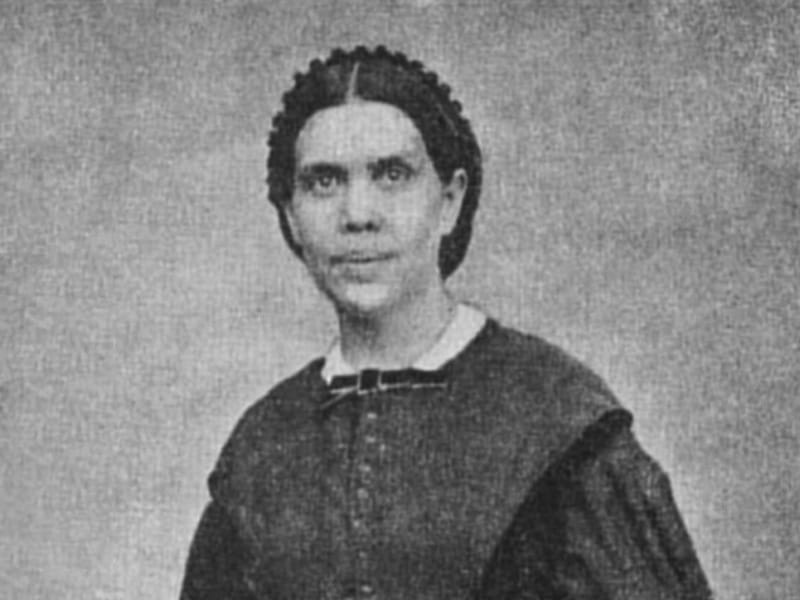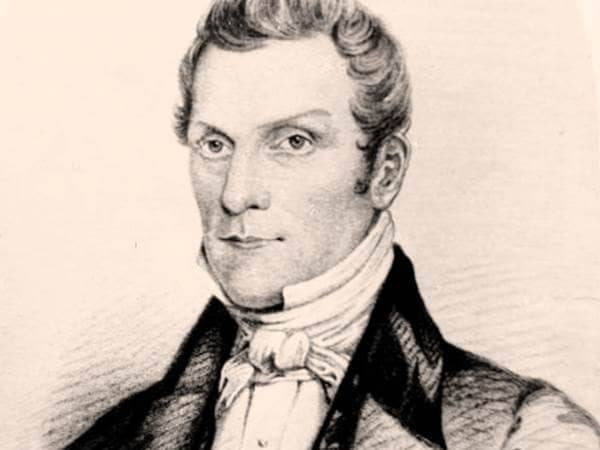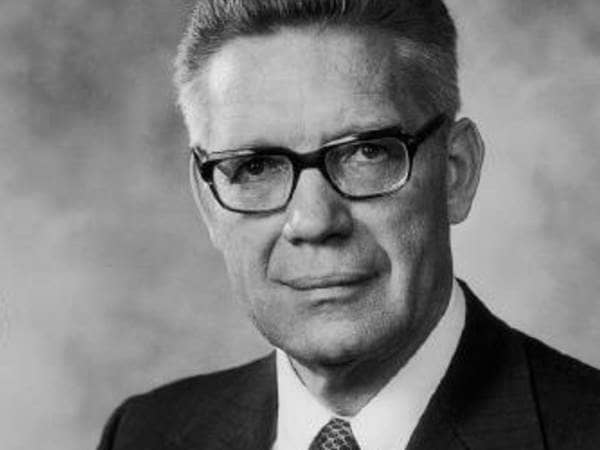
- Lived: November 26, 1827 - July 16, 1915 (Great Awakening)
- Nationality: American
- Known for: Founder of Seventh-day Adventism
- Fun Fact: White's belief that bland unstimilating food was preferable led to the invention of Kellogg's Corn Flakes and Weet-Bix by church members.
Ellen Gould White is the founder of the Seventh-day Adventist Church. Born Methodist, when she was 12, White’s family became involved in the movement following William Miller, who believed he had calculated the exact time of Jesus Christ’s return, on October 22, 1844. When the date came and went, an event called “The Great Disappointment,” much of his movement disbanded. In December of that year, White reporting her first vision, which she interpreted as a comforting message from God that the Adventists were still on their way to the New Jerusalem, but that there were more challenges ahead in the journey. Gradually, word of this and subsequent visions by White spread, and helped some former Millerites reconceptualize their view of the Second Coming. Over the following two decades, White recorded several hundred visions and wrote for various publications distributed among Adventists. In 1858, she published the book, “The Great Controversy,” based in part on her visions concerning the conflict between Christ and Satan, each with an army of angels. The first half of the book describes the history of Christianity, from the early Church to the Millerites, emphasizing the corruption of Roman Catholicism, the partial restoration through Protestant reformers, and the return of true Christianity with the Adventists. The book goes on to prophesy a return of papal power and collaboration between Catholics, corrupt Protestants and the American government to persecute true believers—including forcing people to rest on Sundays (she saw moving the Sabbath from Saturday to Sunday as a Catholic corruption) and to carry the Mark of the Beast described in the Book of Revelation.
In 1863, the Seventh-day Adventist Church was formed in Battle Creek, Michigan, built largely around the writings of White. Later that year, she reported a vision that emphasized the importance of taking care of one’s body as a temple of God, and finding health remedies in nature. This became a major emphasis of the church and its teachings. White, and Seventh-day Adventism, advocated vegetarianism (ranging from avoiding pork to strict veganism), and abstinence from alcohol, tobacco, caffeine and other drugs, and spices. In 1866, the new Seventh-day Adventist denomination opened the Battle Creek Sanitarium; its director, John Harvey Kellogg built it into a major cultural institution, though eventually parting ways with White, but continuing to promote many of the same health principles.
While only about a third of Seventh-day Adventists today practice vegetarianism, it remains a defining characteristic of the denomination, which has grown from its original 3,500 members to about 20 million today.
In 1863, the Seventh-day Adventist Church was formed in Battle Creek, Michigan, built largely around the writings of White. Later that year, she reported a vision that emphasized the importance of taking care of one’s body as a temple of God, and finding health remedies in nature. This became a major emphasis of the church and its teachings. White, and Seventh-day Adventism, advocated vegetarianism (ranging from avoiding pork to strict veganism), and abstinence from alcohol, tobacco, caffeine and other drugs, and spices. In 1866, the new Seventh-day Adventist denomination opened the Battle Creek Sanitarium; its director, John Harvey Kellogg built it into a major cultural institution, though eventually parting ways with White, but continuing to promote many of the same health principles.
While only about a third of Seventh-day Adventists today practice vegetarianism, it remains a defining characteristic of the denomination, which has grown from its original 3,500 members to about 20 million today.
Back to Search Results






